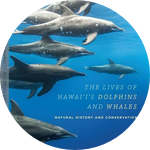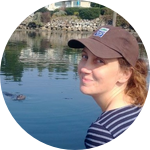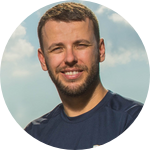About This Project
The dwarf sperm whale (Kogia sima) is one of the least known cetaceans around the globe. Due to their elusive nature and the difficulty to approach them, very little is known on the behavior, ecology and acoustics of this species. Using a drone equipped with a hydrophone, for the very first time, we will record dwarf sperm whales' acoustic signals in the Caribbean Sea, where we recently discovered a population off St. Vincent and the Grenadines.
Ask the Scientists
Join The DiscussionWhat is the context of this research?
Pygmy (Kogia breviceps) and dwarf sperm whales (Kogia sima) are deep-diving whales inhabiting tropical and temperate waters worldwide. Information on the distribution, abundance, and habitat of these species is hindered by their cryptic and skittish nature. Passive acoustic monitoring is a cost-effective method to assess the distribution and abundance of deep-diving whales. However, several deep-diving whales produce echolocation clicks that are hard to distinguish from one species to another. Thus, additional work is needed to collect acoustic data in conjunction with visually validated recordings to better characterize the acoustic signals of each Kogia species. To do so, an innovative and creative solution (using "low-cost" consumer-grade systems) is essential.
What is the significance of this project?
Acoustic data collection of gray whale sounds using a landing drone has been trialed successfully by one of our researchers, and results were published in a scientific journal. By using a hydrophone attached to a waterproof drone, we can obtain acoustic measurements close to the whales allowing new insights into the sound parameters of calls /echolocation clicks.
This study focuses on collecting acoustic signals produced by dwarf sperm whales in an area where they are fairly abundant off St Vincent and the Grenadines, in the Caribbean Sea where the team already runs a research project on cetaceans. By collecting a large number of clicks produced by dwarf sperm whales, we hope to better understand their characteristics, which will help improving acoustic studies globally.
What are the goals of the project?
We will collect acoustic signals produced by dwarf sperm whales in the Caribbean Sea by suspending an acoustic recorder (high-frequency hydrophone configured to collect continuously acoustic data) 2-m underneath a waterproof drone. Whenever a group of dwarf sperm whales will be sighted in the vicinity of the survey boat, the drone will be launched and directed to within 50 m ahead of the animals. The drone will then land on the water surface, switch off its motors (in order to keep the system's self-noise to a minimum), and drift with the tethered hydrophone.
When possible we will also conduct behavioral observations to better define the context of the acoustic production of dwarf sperm whales.
Audio samples and conference presentations will be shared with backers in the lab notes.
Budget
This project is part of an ongoing research and conservation program on cetaceans off St. Vincent and the Grenadines, funded by the US National Science Foundation. We have received research funds to cover boat-based surveys, travel, and subsistence costs for most of the team (2022 and 2023). In May-June 2023, when the proposed project will take place, all field and travel costs will be covered, expect flight costs and local travel for co-PI Dr. Frouin-Mouy.
This study will focus on recording high frequency echolocation clicks of dwarf sperm whales using a drone. This previously tested design (with low frequency whales) demonstrated a great potential to record sounds that would be difficult to impossible to obtain with conventional methods (overside hydrophone from a boat). The majority of the funds requested here would cover equipment (drone and acoustic recorder).
Endorsed by
 Project Timeline
Project Timeline
This project will take place from May 20-June 30, 2023 (6 weeks).
Once field activities will be completed, acoustic data will be analyzed by the end of 2023. A manuscript will be submitted for publication in early 2024 with open-source dataset.
In addition a communication campaign will be carried out using Florida International University's social media accounts, where we have the potential to raise awareness of hundreds of thousands of social media users.
Jan 27, 2023
Social media campain end
Jan 31, 2023
Project launched
Feb 08, 2023
Project Launched
Mar 06, 2023
Purchase equipment
May 01, 2023
Testing equipment
Meet the Team
Affiliates
Affiliates
Team Bio
Our team includes an expert in acoustics and a marine ecologist with extended experience working with dwarf sperm whales at the proposed study location. In addition, our team include students (primarily from minority groups) and local collaborators in St. Vincent and the Grenadines. This project will be a great opportunity to reinforce capacity building efforts that have been initiated between the US and St. Vincent.
Heloise Frouin-Mouy, PhD
Heloise Frouin-Mouy is a French/Canadian marine biologist/bio-acoustician currently based in the US working as a contractor for NOAA in the Marine Mammal and Turtle Division’s Ocean Acoustics Program at SEFSC. She previously worked for a Canadian underwater consulting company during 9 years. She is also a Visiting Scientist at the Department of Biology at University of Victoria (British Columbia, Canada). Her research focuses on the use of passive acoustic monitoring in the ocean to study marine mammals. She uses acoustics to survey the biodiversity and monitor species populations.
She is genuinely interested in marine mammal acoustic communication. Her work involves unconventional fieldwork (e.g., spending time on drifting pack ice in the Gulf of St. Lawrence to record hooded seal's airborne and underwater sounds) or the use and developement of innovative research tool and method (e.g., the "acoustic drone" approach with eastern North Pacific gray whales, a low-frequency cetaceans, in Baja California, Mexico).
She is collaborating with several national and international institutions to conduct sound scientific research that helps serve conservation and management.
She published her research in peer-reviewed journals and presented her results to national and international conferences.
Jeremy Kiszka
Jeremy Kiszka is a marine ecologist and conservation biologist. He is currently an Associate Professor at the Department of Biological Sciences at Florida International University, in Miami, Florida. He has studied marine mammals in tropical and temperate ecosystems around the globe for 20 years. He is currently leading multiple research projects on the ecology and behavior of cetaceans in the Caribbean Sea and South Florida. His research focusses two broad questions: how do ocean ecosystems affect the spatial and foraging ecology of cetaceans and how these large and wide-ranging predators affect community and ecosystem dynamics?
He also recently developed projects to study the least known cetaceans, particularly pygmy and dwarf sperm whales.
Jeremy Kiszka is a member of the Cetacean Specialist Group (IUCN) and a member of the IUCN Red List authority. He is the secretary of the Society for Marine Mammalogy (SMM) and a member of the Board of Governors of SMM. He published over 110 publications in peer-reviewed scientific journals, and presented his work at national and international conferences around the world.
Lab Notes
Nothing posted yet.
Project Backers
- 3Backers
- 1%Funded
- $21Total Donations
- $7.00Average Donation


